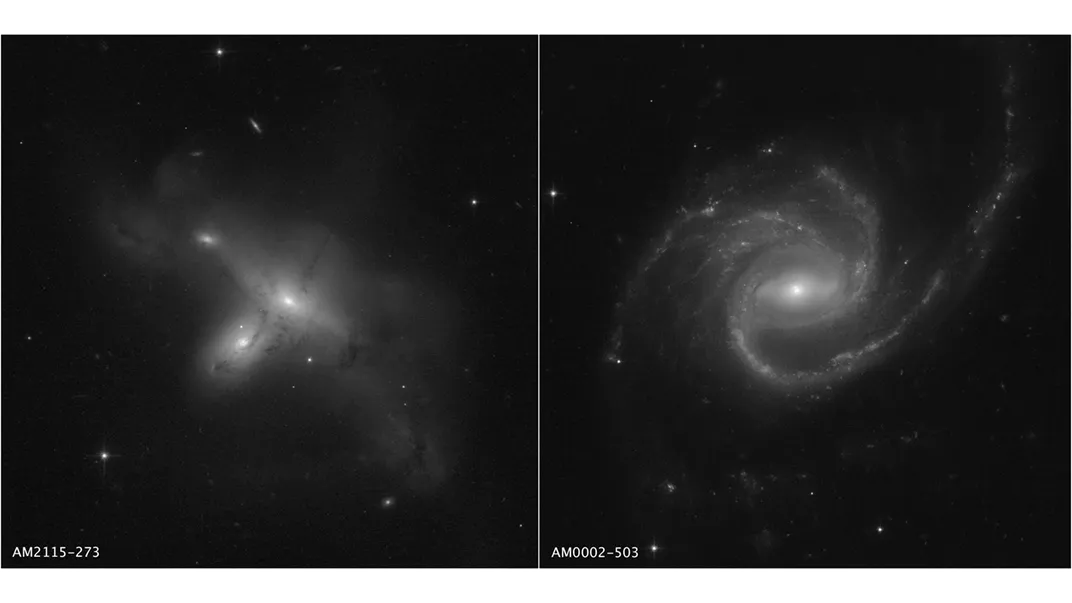Retired NASA Engineers Return to Fix Hubble Telescope
The repaired space computer is back online and already beaming spectacular images of distant galaxies back to Earth
/https://tf-cmsv2-smithsonianmag-media.s3.amazonaws.com/filer/01/e3/01e31b96-dd66-47e9-a855-bcc845c4901c/27946391011_13564aa441_o.jpg)
When a 31-year-old space computer doesn’t work as well as it used to, it’s time to call in the folks who built the system decades ago.
That’s exactly what scientists repairing NASA’s Hubble Space Telescope did when it failed in June. Retired staff and others who helped build the orbiting telescope returned to assist the current team, some of whom were not even born in 1990 when the telescope was first launched into space.
“That’s one of the benefits of a program that’s been running for over 30 years: the incredible amount of experience and expertise,” says Nzinga Tull, Hubble systems anomaly response manager, in a NASA press release. “It’s been humbling and inspiring to engage with both the current team and those who have moved on to other projects. There’s so much dedication to their fellow Hubble teammates, the observatory and the science Hubble is famous for.”
Their efforts paid off handsomely. Hubble went back online July 17 and has been relaying spectacular images back to Earth ever since. Two black-and-white photos in particular provide incredible detail of two distant galaxies—a rare view of ARP-MADORE2115-273, a system with interacting stars located 297 million light-years from Earth, and ARP-MADORE0002-503, an unusual three-tailed spiral cluster about 490 million light-years away, reports George Dvorsky for Gizmodo.
The photos were produced by a team led by astronomer Julianne Dalcanton of the University of Washington in Seattle. They are using the restored Hubble, which orbits Earth at 340 miles in altitude, to collect images of unusual galaxies.
“I’ll confess to having had a few nervous moments during Hubble’s shutdown, but I also had faith in NASA’s amazing engineers and technicians,” she says in a news release posted on NASA’s Hubble website.

Of course, the new images would not have been possible if older scientists had not been available to help service the telescope. The Hubble main computer shut down June 13, placing all instruments in safe mode. When that happened, NASA scrambled to contact team members who had worked on the telescope three and four decades earlier, reports Tariq Malik of Space.com.
While some of the retired staff connected remotely because of Covid-19 restrictions, others still working at NASA’s Goddard Space Flight Center in Maryland pored over old manuscripts and documents looking for clues to fix the problem.
After weeks of head scratching and problem solving, old and young engineers determined a glitch in the computer’s power control unit was the likely culprit. NASA did a work-around by switching to backup units and rebooting the system, writes Brandon Specktor for Space.com.
“I’m thrilled to see that Hubble has its eye back on the universe, once again capturing the kind of images that have intrigued and inspired us for decades,” says NASA administrator Bill Nelson in the press release. “This is a moment to celebrate the success of a team truly dedicated to the mission. Through their efforts, Hubble will continue its 32nd year of discovery, and we will continue to learn from the observatory’s transformational vision.”
Now that the repaired Hubble Space Telescope is running as normal, it’s expected to work in tandem with the new James Webb Space Telescope when it’s slated to launch later this year—unless the new telescope faces further delays, Specktor reports.
/https://tf-cmsv2-smithsonianmag-media.s3.amazonaws.com/accounts/headshot/dave.png)


/https://tf-cmsv2-smithsonianmag-media.s3.amazonaws.com/accounts/headshot/dave.png)